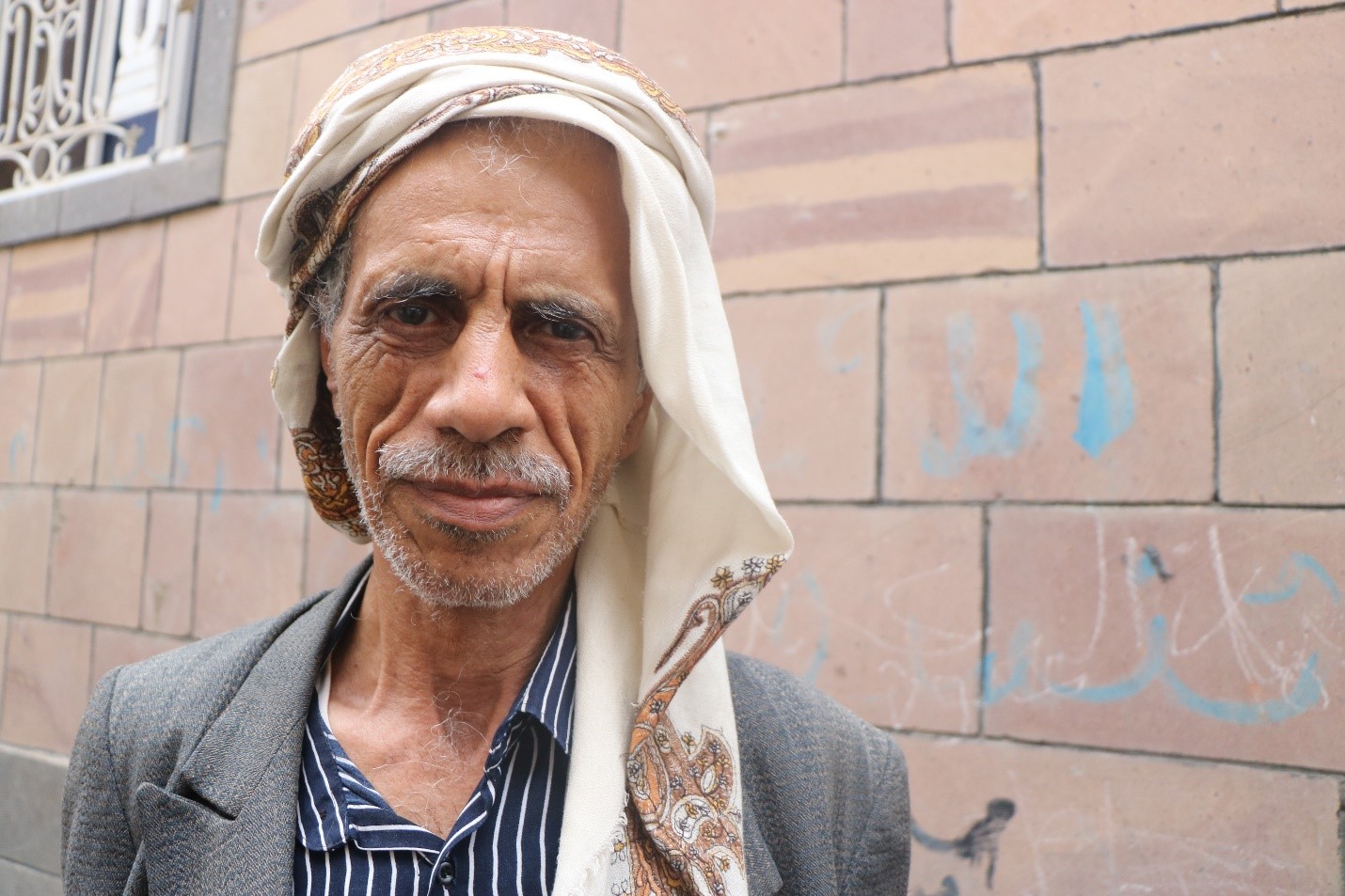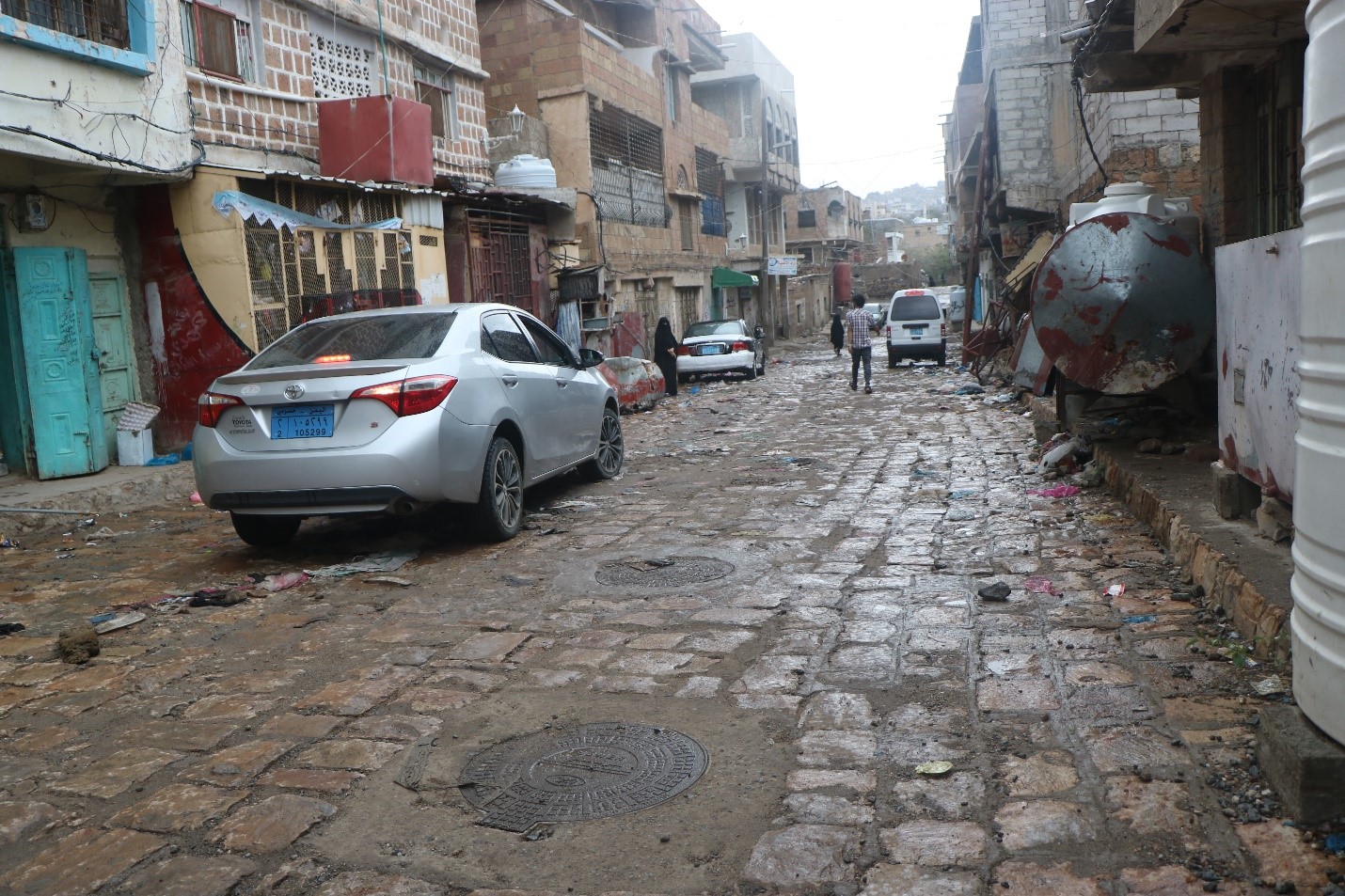Mohammed is a 55-year-old father of eight children. He lives in Al Dhahiria area of Al Qahira district, a district of Taizz governorate in southwest Yemen. People of Al Dhahiria area used to suffer from a lack of sewage systems, meaning that sewage water filled the streets in the area. “We were unable to open the windows because of the bad odours,” says Mohammed.
For many years, wastewater filled the streets of the area, breeding flies and mosquitoes and causing illnesses. “The streets were filled with sewage water, which caused cracks in the walls of many houses in the area,” says Mohammed. “We were afraid that those houses would collapse at any moment.”
Sewage systems and wastewater treatments are extremely important components of the infrastructure that help keep the environment safe and prevent the spread of water-borne diseases by safely transporting wastewater to treatment stations. Decrepit sewage systems in Taiz often overflow wastewater into the streets, spreading germs and toxic chemicals. This causes many risks to people’s health, including the spread of diarrhea, cholera, malaria and typhoid.
With funding from the European Union, CARE works to improve access to sanitation and create a safe environment for people in Taiz governorate. Luckily for Mohammed’s family and other residents in Al Dhahiria area, CARE repaired the sewage system, and the neighbourhood is now free from contaminated water and bad odours.
“Thanks to CARE,” says Mohammed, “The sewage system was repaired, and the area is now free from contamination and bad odours,” he concludes.
Sanitation infrastructure is critical for improving public health, the environment and people’s quality of life. Improved sewage systems prevent disease outbreaks and protect human health during infectious disease outbreaks, including the current COVID-19 pandemic.

